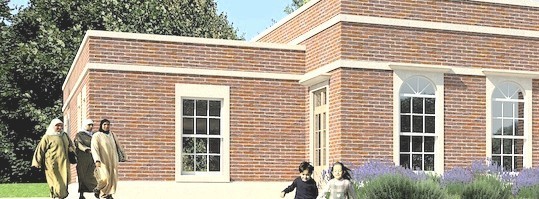
By Fatema Nasser
Year 8 / Shams Class, Wessex Madrasah
Eid-ul-Fitr follows immediately after the Holy month of Ramadhan. It is a festival celebrated by all Muslims worldwide on the 1st of the month of Shawwal. The festival begins when the first sighting of the crescent is visible in the sky. Celebrating this festival marks the end of the fasting period for Muslims and starts the 10th month of the Islamic calendar.
Eid-ul-Fitr is celebrated not because the Holy month of Ramadhan is over, but out of gratitude to God for having given us the opportunity to repent for our sins and perform good deeds. Muslims thank Allah for the help and strength that He gave them throughout the previous month to help them practice self-control. It is a time to reflect on the month that has passed, to be happy at having achieved a month of fasting and worship, and to hope that the deeds have earned the pleasure of the Lord.
As well as celebration, our hearts are filled with emptiness and sorrow as we part with the greatest month of Allah. Eid is a time of making amends, and carrying on those good habits that were started in the Holy month of Ramadhan, throughout the whole year.
Eid is an exciting event for Muslims, and they usually celebrate by decorating their homes, wearing new clothes, gift giving and of course, a big celebratory feast. During this holiday, Muslims greet each other by saying “Eid Mubarak” meaning “Blessed Eid” and “Taqabbala Allahu a'maalakum” - “May God accept your deeds”.
On the eve of the Eid festival, Muslims gather to recite special a Takbir, prayers and ask the Almighty to accept their humble but sincere deeds of the concluding month. On the day of Eid, Muslims give out some money for the poor. This contribution is known as “Zakatul Fitr.” This is a reminder that the fasting has made them more understanding to the needs of others.
It is recommended to take a spiritual bath, wear clean and fine-looking clothes and perfume oneself before attending the Eid prayer.
After the Eid prayer, Muslims usually scatter to visit various family and friends, give gifts (especially to children), and make phone calls to distant relatives to give well-wishes for the holy day.
Most Muslim communities will hold an Eid dinner later in the evening for the people to get together. The celebrations continue for a couple more days, sometimes even till the next weekend.
Taqabbala Allahu a'maalakum.
Eid Mubarak to you all!
